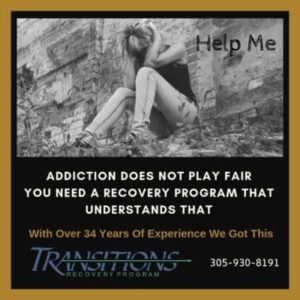Understanding The Signs of Teenage Drug Addiction
As more teenagers become addicted to drugs, the time to prevent lifelong substance abuse is now.
The Problem Of Teenage Substance Abuse
 Unfortunately, addiction is all too common among young people. With prescription and street drugs remaining easily accessible to many teens, the chance of a teenager experimenting with drugs is extraordinarily high. Whether they decide to try drugs after hearing a song regarding them, peer pressure from friends, or because they see their parents abusing substances, teenage drug addiction is something we continue to see.
Unfortunately, addiction is all too common among young people. With prescription and street drugs remaining easily accessible to many teens, the chance of a teenager experimenting with drugs is extraordinarily high. Whether they decide to try drugs after hearing a song regarding them, peer pressure from friends, or because they see their parents abusing substances, teenage drug addiction is something we continue to see.
So why do children become addicted to drugs? Here are some of the more common reasons:
- To relieve them of stress
- Impulsive nature
- Genetic predisposition to substance abuse
- The desire to fit in with a bad crowd
- Self-medicating to deal with mental or emotional issues
- They’re curious
As teen drug use continues to plague the U.S., understanding the inner workings of it is the key to ensuring it doesn’t happen to your teen. In this article, we’ll discuss some common uses for drugs, what puts them at risk for drug addiction, and how you can get your teen the help they need today.
If you or a teenager you love need rehab call 1-800-626-1980.
Your call is crucial and could save a life.
Drug Use Among Teens To Excel In School
While it may seem counterintuitive, some teens are doing drugs to boost their performance. Stimulants are popular because they can give these students the extra energy, enhanced mood, and targeted brain function they feel they need to excel.
Students are using prescription drugs such as Adderall and Ritalin because these drugs are often easy to get a prescription filled. Commonly prescribed to treat Attention Deficit Hyperactive Disorder or ADHD, teens use these drugs because they believe it’s easier to focus on their academic performance.
Even though some young people receive a prescription for these drugs for their ADHD, too many teens believe that using them without a legitimate medical reason will help them get better grades. The unfortunate truth of the matter is that studies have consistently shown that students abusing Adderall without a prescription get worse grades. As if that’s not bad enough, the teen using these drugs can experience adverse side effects you should look out for including:
- Anxiety
- Chest pain
- Confusion
- Hallucinations
- Headaches
- Insomnia
- Lack of appetite
- Mania
- Overdose
- Strained relationships
- Talkativeness
- Weight loss
Teenagers Using Cannabis
The cannabis industry is booming, and while this is great for some entrepreneurs, these products are now more easily accessible than ever before. According to the National Institute on Drug Abuse, approximately 5.8 percent of 12th graders report that they are using marijuana daily. Of course, even more teens are using this drug recreationally.
While some have medical reasons for using cannabis, others are focusing on “getting high,” using the drug for its sedative effects. The following are some of the more common side effects of teens using cannabis that you’ll want to look for:
- Calm mood or slow talking
- Declining school performance
- Impaired driving ability
- Increased appetite, also known as “the munchies”
- Loss of motivation to do extracurricular activities
- Poor memory
- Red, glossy eyes
While all of these side effects might not be observable in every teen, some of them can become noticeable, especially with prolonged use.
Cannabis has seemingly always been a popular drug among high school students. They’re at the age when they’re most impressionable, meaning they can give in to peer pressure if they’re hanging out with the wrong people. And with music iconizing cannabis use and the industry surrounding it, experimenting with this substance is highly prevalent.
More Signs That Your Teen Might Be Addicted To Drugs
Puberty can cause teens to act rather — strange. And although your teen might be acting out, it doesn’t necessarily mean they’re addicted to drugs. At this point in their lives, they’re trying to fit in, looking to make lifelong friends, and trying to get the most out of their youth.
Even with all of this being true, some signs will show that your teen might have a drug problem. Keep a lookout for the following as your teen transcends into adulthood:
- Changes in their behavior or physical appearance
- Consistently finishing prescriptions early
- Constantly feeling tired
- Constant oversleeping problems
- Consumption of content relating to drugs and alcohol (pop culture, music, videos, etc.)
- Diminishing academic performance
- Experienced something traumatic
- Hanging out with a different crowd
- Maintaining friendships with people who are abusing substances
- Mental disorders, such as anxiety or depression
- Missing money around the house
- Other family members are abusing drugs or alcohol around them
- Suffering from low self-esteem
- Wild mood swings
- Withdrawn from family and friends
Even though some of these warning signs might not indicate a drug problem, spotting these red flags and discussing them with your teen can reveal a substance abuse issue. Keeping a watchful eye is always a good idea if you’re worried about your child succumbing to substance abuse.
Find Your Teen The Help They Need
The truth behind teens and drug use is that starting early has the potential to result in a life full of dependence and substance abuse. Resolving an addiction early is the best way to increase the chance of successfully treating the problem.
So as you raise your teenager, make sure to keep the lines of communication open. Communicating the source of these problems is sometimes the first step to getting substance abuse treatment fast.
Does your teen need treatment for a substance abuse problem? With Transitions Recovery, your teenager will find the best transition of themselves. Our addiction treatment program in Florida will get your child back on track for success as an adult living a sober lifestyle.
Help create a better future for your teen and make the call today. 1-800-626-1980.

















